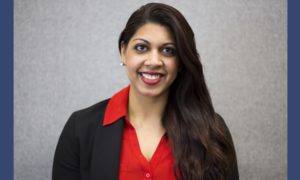Normally, it’s hazardous to prophesy in a column written before the election what the next president will do. But since Republican John McCain and Democrat Barack Obama have proven so indifferent and unimaginative on youth issues, it appears (barring some spectacular October surprise) safe to forecast that the more candidates bellow “Change!” the more likely it is that 99 percent of youth and social policy stays the same.
Sure, expect a bit more hard-line rhetoric, poisonous drug-war incompetence and goodies for godly lobbies from President McCain; or more erudite rhetoric, confused drug-war incompetence and semi-godly subsidies courtesy of President Obama. But, judging from the 2008 candidates’ silence on pressing youth issues – rampant child poverty and its consequences, family crises driven by parents’ rising drug abuse and crime, and elders’ fiscal disownment of the next generation – no real changes are likely.
True, the candidates have debated other mammoth grown-up failings, like war and economic meltdown. But that doesn’t justify their few and stale clichés on crime, drugs, health, school and social policy reform. In the past decade, 300,000 Americans died from gunshots, 280,000 from illicit-drug abuse, 180,000 from homicides and 170,000 from AIDS – hundreds of times more than Osama bin Laden killed.
Even worse: What little the candidates have said about youth issues (mainly standard education dogmas and imprecations to parents) was already hackneyed in Campaigns 1992, 1972 and 1912. Substitute “youth” for “Chinese,” “Negro,” “immigrant,” or “Indian,” and the same remedies recur in tiresome cadence: whether to deploy attitude adjustments or cops and crackdowns to make officially designated scapegoats act civilized.
Meanwhile, the urgency of changing futile American social policies founded in demographic scapegoating (that is, blaming a powerless, unpopular group for problems rather than attacking social problems directly) continues to be ignored. A century of increasingly pointless drug wars, sex education squabbles, crime cure-alls, and social-crisis panics raises a stark question: Are American grown-ups incompetent to govern a diverse, modern society?
Are aging adult brains, as they lose memory, learning genes and IQ, biologically condemned to rigid thinking, mass stereotyping and irrational fear of anything new and different? How else can we interpret the polls showing older white voters resurrecting ancient racial prejudice against Obama? Or the incessant, baseless panics toward racially diverse young people, immigrants and new technologies?
I don’t believe we can blame biology. Aging minds are quite capable of innovative thinking. What we lack is self-discipline. It’s satisfying for elders to indulge prejudices flattering our moral and intellectual superiority to award ourselves undeserved wealth and privileges while rendering young people poorer.
Even so, older generations normally don’t vilify and abandon their young as Americans are now doing. I fear the extraordinarily destructive refusal of American leaders to confront or even acknowledge social epidemics stems from evolutionary fear. The pace of modern diversity and change, new to human societies, has generated a crazed hostility against young people and harshly moralistic, profit-driven social policies, as elders retreat to the imaginary safety and comforting homogeneity of bygone eras.
The proof of modern elders’ incompetence to govern is the accelerating worsening of troubling trends. It’s simply unbelievable that today’s worst threats to youths’ well-being – centered in the attitudes and behaviors of aging adults, such as mammoth eruptions in drug abuse, violent death, crime, imprisonment, HIV, family troubles, and political and fiscal selfishness – have been ignored by authorities for decades.
No sane formulation of youth and social policy can begin until all sides confront the disintegration of middle-aged American adulthood: parents, voters and policymakers. Nor can youth policy advance until the backward, racially coded political bigotries that devastate young people are decoded and castigated.
The most gut-ripping fights over youth policy and funding today concern trivial anxieties toward the modern age. Adults today ignore dire threats and obsess over chimerical ones. It isn’t “the media,” “peer culture,” “corporate advertising,” “the Internet,” “pornography,” the “teenage brain” or whatever pop-foolishness is trotted out by popularity-seeking lobbies and commentators to explain any unwanted youth behavior.
The personal and political failings of aging America underlie virtually every serious problem young people suffer. Defunded schools, dismantled opportunity and mushrooming debt inflicted by older voters and lawmakers testify to the tribal unwillingness of aging, mostly white generations to support more darker-skinned youth.
Until leadership arises with the vision and courage to confront irrational evolutionary fear, America will suffer continued fragmentation, violent dangers, diminished investment in young people and disownment by older and wealthier groups. We will see if young voters’ unprecedented Campaign 2008 activism, overwhelmingly for Obama, is betrayed yet again by aging, ideas-challenged leaders.
Mike Males is senior researcher for the Center on Juvenile and Criminal Justice and the online information service http://www.YouthFacts.org. Contact: mmales@earthlink.net.






























